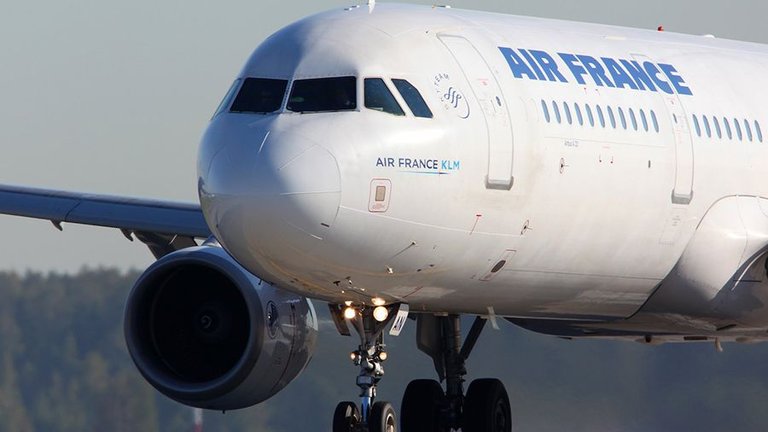
🍀 Air France KLM, a holding company that owns one of the largest airlines in the world, intends to test the technology of blockchain and decentralized applications to automate the chain of aviation supplies.
🍀 The webinar, which was attended by Microsoft and the software company Ramco Aviation, the head of innovation of Air France KLM James Kornberg (James Kornberg) spoke about the company's plans to explore the potential of blockchain technology, as well as options for the use of decentralized technology for the chain of aviation supplies.
🍀 Kornberg stressed that the use of blockchain technology should be realistic enough so that the company could implement them and profit from them. He noted that in the coming months Air France's innovation department will focus on testing the four main advantages of blockchain technology: flexibility, traceability, integrity and the ability to work without intermediaries.
🦋 'Usage options should be realistic. The four main features of blockchain are flexibility, transparency, integrity and the ability to work without intermediaries. They are great for the chain of aviation supplies, ' 🦋 Kornberg said.
🍀 It is quite difficult to use open blockchain to service air supply chains, without the use of off-grid solutions, such sidcheys and platforms like RSK, because of their limited capacity and existing scaling problems. Instead, Air France can consider the implementation of managed blockchains, which are not inherently inherent, but which have a certain level of decentralization, distributing the powers of administrators across the network.
🍀 In particular, in a manageable blockchain intended for air supply chains, at each stage, site operators may need to check and confirm certain contracts or transactions. Even if blockchain administrators confirm certain contracts, site operators can reject them if they are deemed fraudulent or inaccurate.
🍀 A similar consensus protocol was demonstrated by Intel's Sawtooth Ledger platform and its Proof-of-Elapsed Time (PoET) protocol. Intel Whitepaper says:
🦋 'Each scan agent requests a timeout from the enclave (trusted function). The leader selects the verification agent with the shortest waiting time for the particular transaction block. One function, for example, 'CreateTimer', creates a timer for the transaction block, which was guaranteed to be created by the enclave. Another function, for example, 'CheckTimer', confirms that the timer was created by the enclave. If the expiration date has expired, then it creates a certificate that can be used to confirm that the verification agent actually waited for the allotted time before claiming to be the leader. ' 🦋
🍀 Kornberg explained that the aviation industry should only go through the first phase of digitization - convert analog data into digital information and transfer it to storage in a secure database. Once this happens, blockchain technology can be used for decentralized storage of information.
🦋 'We still have a lot of un-digitized data - these are the ones we should do first,' 🦋 Kornberg said.

🤗 source: bitnovosti.com 🤗
Congratulations @johncobra! You have completed some achievement on Steemit and have been rewarded with new badge(s) :
Click on any badge to view your own Board of Honor on SteemitBoard.
For more information about SteemitBoard, click here
If you no longer want to receive notifications, reply to this comment with the word
STOPGreat read @johncobra.
#Blockchain Aviation definitely brings Security and Safety in the system.
Here is an article which talks about "Blockchain for Aviation – Better Transparency and Trust Using Blockchain" which might interest you.
https://www.leewayhertz.com/blockchain-aviation-better-transparency-trust/
What is your take on this? Always open for discussion.